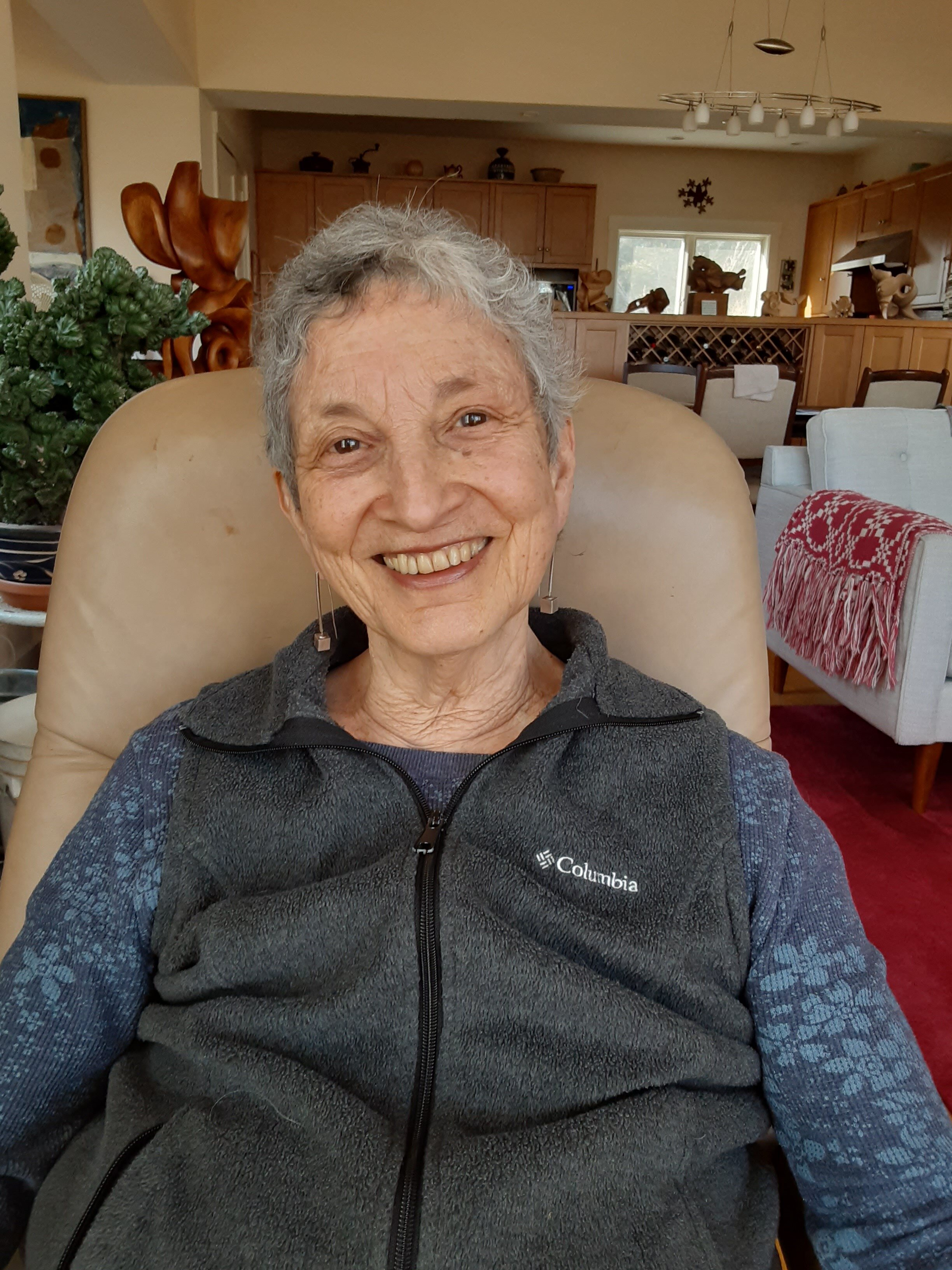Ellen Goldsmith is a writer whose recent book, Left Foot, Right Foot, is an illness and recovery story in 28 poems.
I love thinking of poems as conversations with other poems and other poets. For years I’ve been returning to Milosz’s “Ars Poetica?,” often lingering in a different stanza. Stanza means room in Italian and I do feel there are many rooms in Milosz’s poem. This familiar poem took on new meaning for me in the context of illness, as I explore in my poem “In Conversation with Milosz’s ‘Ars Poetica?’” (Intima, Spring 2022). In acknowledging how hard it is to “remain just one person,” it helped me to accept my swirling selves, to embrace recovery without erasing the difficult times.
Jenny Qi’s “Writing Elegies Like Robert Hass” (Intima, Fall 2015) also looks to another poet for help with the hard task of writing an elegy for a mother who was not all one thing. The expressed desire to keep it light, to make the reader laugh, cedes to a telling of the long and difficult process of elegy writing, the conflict between presenting the mother the poet remembers or the mother she’d like to remember. After some pleasingly concrete memories, the difficult end comes into view, the mother “face down on the floor,” an accident, and the accusing face of the doctor.
I admire the honesty of this poem, how it tackles reality and desire, how it ends in such a hard place. The work of writing can be seeing the whole picture. The last stanza of “Writing Elegies Like Robert Haas” takes me to another room in “Ars Poetica?”:
In the very essence of poetry there is something indecent:
a thing is brought forth which we didn’t know we had in us,
so we blink our eyes, as if a tiger had sprung out
and stood in the light, lashing his tail.
A tiger in the light. What some strong poems deliver.
Ellen Goldsmith is a writer whose recent book, Left Foot, Right Foot, is an illness and recovery story in 28 poems. Her poetry has appeared in numerous journals. Goldsmith lives in Cushing, Maine.

